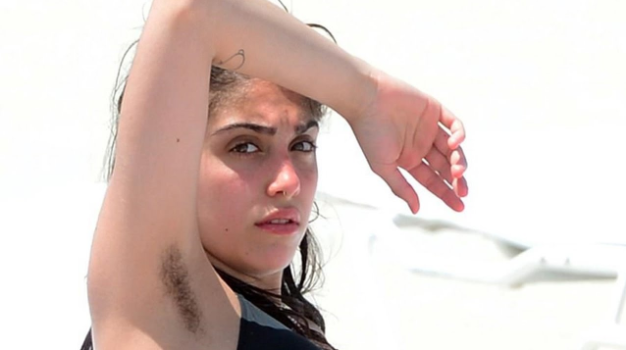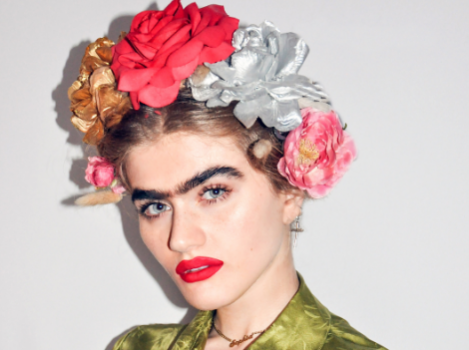Since I was a teenager, I have been told by a multi-billion dollar corporation that the only way to reveal my inner goddess was to shed my body of its natural protective layer of hair. We have all been sent this message since childhood; that female beauty and confidence is inherently linked to hairlessness through aggressive ad campaigns selling us products subject to the ‘pink tax’ and the general representation of infantilised eurocentric beauty standards across all media. But what happens when you have been buying into it for years without really thinking critically about what you have been putting your body through and the cost involved?
Body hair is a contentious subject for all women whether we like it or not. The dichotomy between bodily autonomy and adhering to the beauty standards of a capitalist patriarchy can be tricky to navigate. Surely, what I choose to do with my body is my choice and I’m in charge but how much of what I do to my body really is my choice? Have you ever paused, mid wax, and thought ‘who exactly am I doing this for?’ If it’s not yourself and only yourself, put the spatula down immediately.
We all know by now that women only remove their body hair because of large corporations telling them to and it didn’t start with Veet. It started in 1915 with the introduction of the first safety razor specifically for women. Gillette realised that they could expand their market by making women feel bad about themselves and the Milady Décolleté for armpits was launched. This emotional coercion continued over the decades to include legs, pubic hair and top lips, with some women spending up to £23,000 on hair removal over a lifetime. It’s easy to know the reasons we started to do something 103 years ago and be sufficiently outraged but why do we still do it? Who do we do it for? What do we do it for?
I started shaving my legs with my mum’s rusty razors when I was 12. They sat in the bathroom cabinet for months only being used when she scraped them across her legs sporadically during the summer months. I had never given it much thought and my mum had told me that I could start shaving my legs at 15 like my sister had and that seemed fine with me. That was until a younger friend was about to start secondary school and her mum told her to shave her legs before she started so of course, I had to do mine too. This wasn’t about getting rid of my body hair, it was about the need to appear more mature and grown up to a younger child. My mum soon noticed that her razors were rusting quicker than usual and that was the end of it until I started buying cheap disposables with my pocket money. The blood spattered on the bathroom floor quickly gave me away. This was the beginning of a 15 year journey that saw razors, waxing, Immac and tweezing to rid myself of not really that much body hair in the first place. At one point in my late teens, I was even shaving my forearms! Not one person had told me that was what I was supposed to do. Not one person had told me that my body hair was unacceptable. No, I just knew that as a young woman, it’s just what you did in the desperate hope of being considered beautiful.
But I was lucky. You can only see the peach fuzz on my cheeks if you get too close. My eyebrows don’t meet and my top lip has nothing but a few blonde hairs and some dry skin. I haven’t ever really needed to spend a lot of money or time on hair removal. I can count the amount of times I’ve paid someone to painfully extract hair from my body on three fingers and I have about five hairs under my arms. As I sat in the bath last week stroking my fuzzy legs that hadn’t seen a razor in over a month, I contemplated whether finally hacking through the hair made me a bad feminist or not. Why was I about to run a metal blade across my skin if no one but my partner was going to see my legs for at least another 3 months? These days, believe it or not, I do it for comfort. I buy cheap supermarket own-brand razors and I don’t use shaving foam so the cost works out at about £2 per month. Once a week or so, I shave my legs and under my arms while the conditioner sinks into my hair (once in a while, I even do my big toes) therefore not taking up any additional time. I genuinely love the feel of smooth skin on my legs and I lay in bed after getting out of the bath, rubbing my legs together like a grasshopper. As you can see, I have justified my internalised misogyny and will probably continue to conform to what a woman is supposed to look like whether I do it for the leg rubbing or not!
There are so many reasons why women choose to remove or not remove their body hair. And that’s what it needs to be: an active choice, not the unconscious fulfillment of what we think femininity should be. I have discussed this issue with quite a few women recently and the consensus is generally similar. One woman told me that she no longer removes body hair because she likes the way it feels and looks and she wants to set a good example for both her son and daughter. Another woman told her colleagues that she had stopped shaving her legs and was met with horrified questions about what her husband thought of her! Another tells of the negativity she received from other women when she stopped shaving under her arms. What I noticed about these conversations was that we are all now grown women and relatively comfortable in our own skin (ie, giving zero fucks for others’ negativity).
What about the young girl at primary school who is teased in public by a stranger about the low hairline on her neck? The teenager who wears a skirt longer than everyone elses to hide her legs? The young girl who is called ‘moustache girl’ and teased for her hairy arms in the playground? The young woman she grows into who only wears long sleeved clothing for much of her twenties? The woman who cannot spontaneously go for a swim or wear a short skirt without worrying whether she can fit in a hair removal session beforehand? Body hair is intrinsically linked to race, class and gender and it is easy for me as a fair, cisgender woman to revel in my fuzzy legs because, quite simply, I’m allowed to. For a woman to ‘pass’ she has to conform to tired, old eurocentric beauty standards thus causing even more pain and discomfort (mental and physical) for women with dark hair, women of colour and trans women, not to mention the costs involved. For some, not removing body hair just isn’t an option that they are comfortable with and I am not here to convince them otherwise.

Lourdes Leon was applauded last year for flaunting her unshaven armpits and Sophia Hadjipanteli has been credited for ‘bringing back the monobrow.’ So, do we have a beauty revolution on our hands? No, because as Priya Khaira-Hanks points out, these women are “an example of how female body hair in the mainstream is still confined to gimmick and novelty, only acceptable if your appearance conforms to beauty standards in every other respect.” Would Lourdes’ hairy pits be celebrated if she wasn’t a slim, beautiful young woman? Would Sophia’s unibrow be deemed fashionable if she wasn’t an amazonian blonde? Of course they wouldn’t!

So the next time you book yourself in for a wax, ask yourself ‘Who am I doing this for? What else could I be doing with my time and what else could I spend the money on?’ If the answer is anyone but yourself, you know what to do. Whatever you do, don’t shame someone else for their choices.
Thank you to the women of Essex Feminist Collective and my incredible friends for your insights.

Check out Kajal, one of the highest grossing Bollywood actresses of her time on why she kept a unibrow:
https://images.dawn.com/news/1176160
Having thick, black hair, I don’t feel comfortable with it especially as now we were clothes and don’t run around naked so I’m similar to you in terms of most of my body but in terms of my face, I prefer the clean look as it also stops me from breaking out as much.
LikeLike
She’s beautiful! Exactly, there are so many different reasons for the choices!
LikeLiked by 1 person